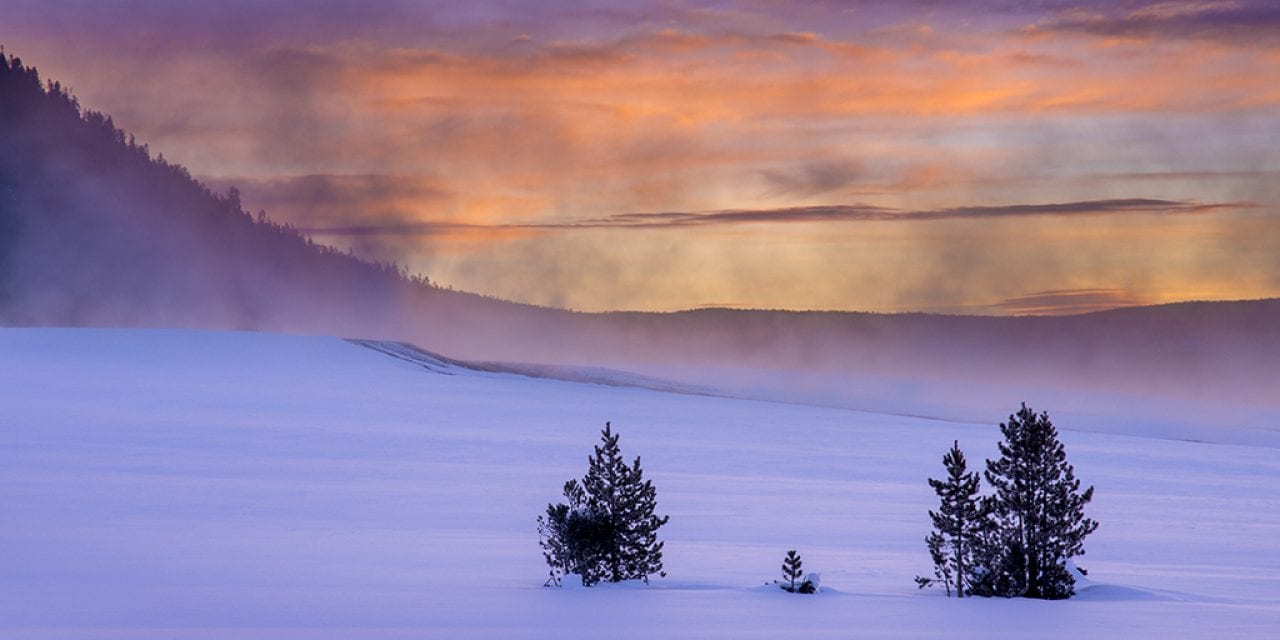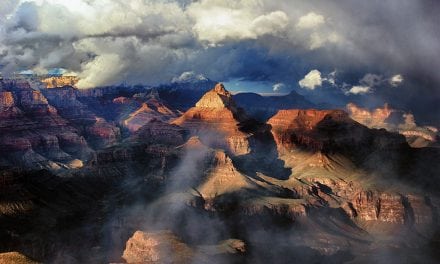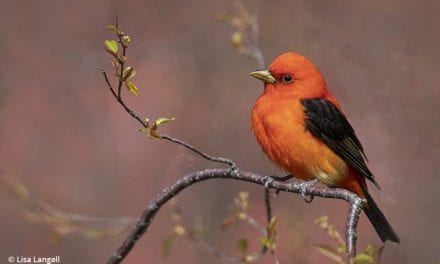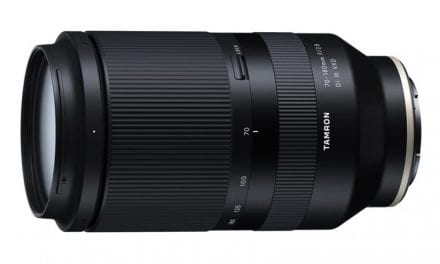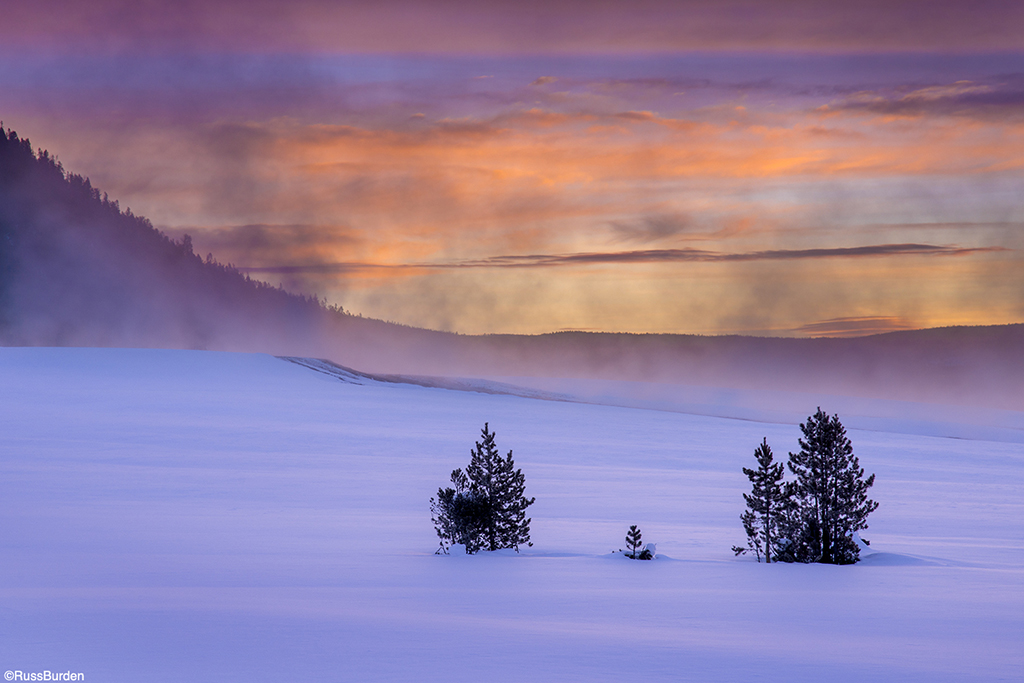
Fresh snow takes on the shape of what it drapes. It’s impacted by the wind’s ferocity, it reflects the sky’s color and the twinkle of each flake is affected by the intensity of the cold and sun. Newly fallen flakes paint a virgin landscape with pristine beauty that beckons the call of shutters, polarizers and wide-angle lenses. A winter wonderland awaits those who time a freshly fallen snow with their arrival. To capture all the moods of snow, apply the below tips to make your images stand out from the rest of the crowd.
Heat Up The Frost
Sunrise and sunset are the times of the day when clouds turn vividly warm and ignite the sky in fireworks of red, yellow, orange, purple and magenta. What makes this extra special is the dominant color reflects off the snow and adds subtle warmth to it. White surfaces reflect light and color. Think about a portrait photographer who uses a white disk to bounce light back onto his or her subject. Whatever color and light hit the white reflector, it bounces back. Snow acts the same and reflects the color of the sky and absorbs the tones in the clouds. A huge benefit is this compresses the contrast range of the scene so detail is maintained in shadows and highlights. To prevent blowing out the warm tones in the sky, be sure to monitor your red channel after each exposure. If the sky exposure results in blocked up foreground detail, make two exposures and blend them in Photoshop. The overall mood that’s created is determined by the color in the sky.
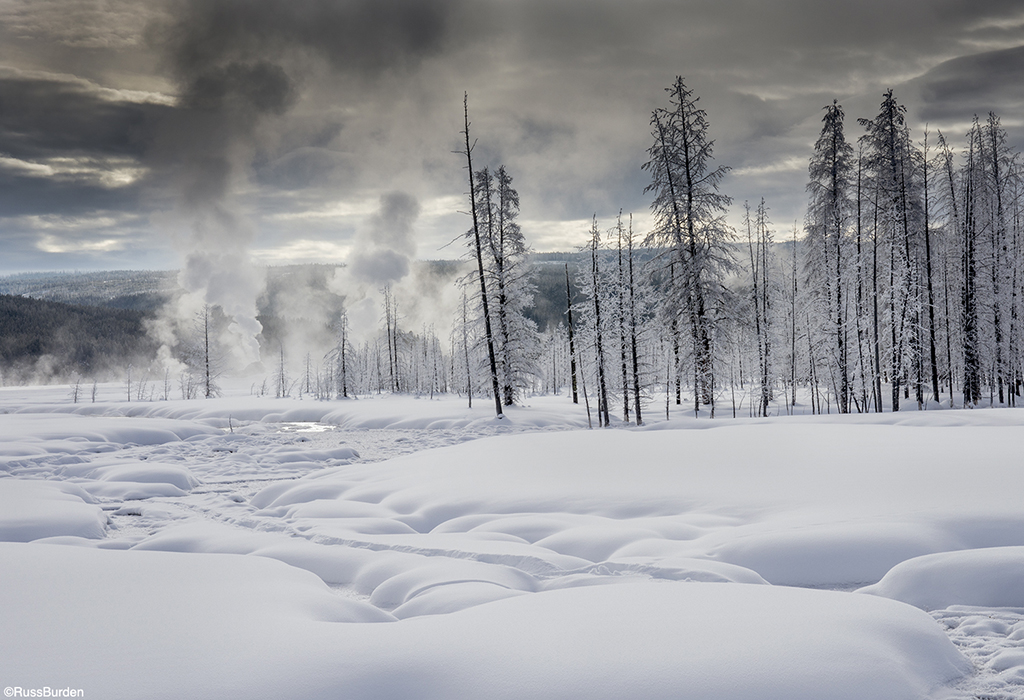
Chill Out
Without clouds, snow can’t be created. Therefore, clouds and snow are obviously paired together. Not all sunrises produce color and not all snow scenes are associated with blue sky days. It’s with this in mind you need to check your histogram and be sure you don’t bunch pixels in the middle. Push the histogram to the right, but don’t create spikes on the edge. A drab gray mood of clouds, just like the warm tones of a great sunrise, is reflected by the snow. The gray sky and gray foreground have to be coaxed toward white when you optimize the image in Photoshop. Bring the highlights slider to where the bright pixels begin and you’ll see the snow brighten and take on desirable shades of white. In conditions where total dreary gray dominates, wait for better light because the resulting image, regardless of how much post processing you do, will fall flat and lack contrast. The overall mood that’s created is cool in tone.
90 Degrees To The Sun
Sidelight is key when it comes to scenic photography. Shape, form and texture are created when a subject is raked in sidelight. The side that faces the sun takes on highlights and the side that faces away is in shadow. This creates three-dimensionality. An added bonus is a polarizer produces its strongest effect when it’s spun to the maximum when it’s 90 degrees to the sun. If blue sky is in the photo, it becomes more saturated, reflected surfaces are eliminated—which allows color and tone to come through anything that’s wet or shiny—and the contrast is enhanced. The overall mood that’s created is full of life and expresses happiness.
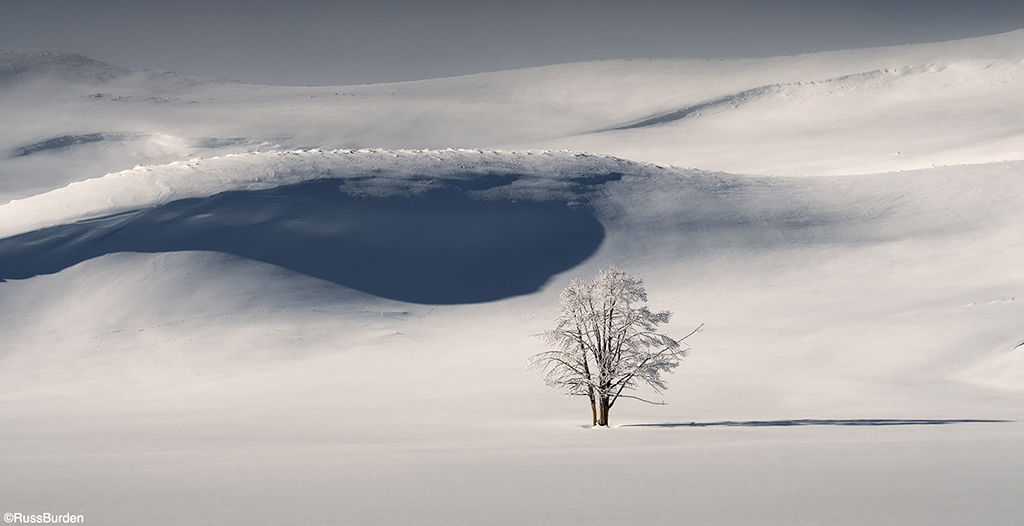
A Kiss From The Sun
When fresh snow falls overnight followed by a crystal clear sky to the east in the morning, it simply doesn’t get much better. Nothing obscures the warm tones from the sun that gently kiss and bathe the snow in what it blankets. The yellows, reds and oranges that fall upon foreground and background subjects are pure and true. The gorgeous hue that’s imparted doesn’t last long, so it behooves you to be in place at the time the sun crests the horizon. Measure your time in seconds since this splendid warm light lasts no longer than 10 minutes. Be very cognizant of not blowing out fragile bright whites and again, monitor the red channel as the warmth that’s imparted to the snow can be easily overexposed. The overall mood that’s created shows new life, a fresh start and is invigorating.
Visit www.russburdenphotography.com for information about his nature photography tours and safari to Tanzania.
The post Snow Moods appeared first on Outdoor Photographer.

